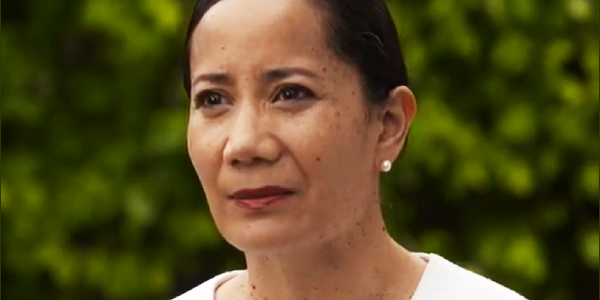PACIFIC Fisheries Ministers have called for consideration and action on fisheries in United Nations Framework on Climate Change Convention Conference of the Parties (COP) meetings as the world’s biggest and healthiest tuna stock faces potential depletion because of climate change.
Republic of Marshall Islands’ Minister of Natural Resources and Commerce Hon John Silk, Niue Minister for Natural Resources Hon Mona Ainuu, Kiribati Minister of Fisheries and Marine Resources Development Hon Ribanataake Awira, Tonga Minister for Fisheries Hon Lord Fohe and Pacific Oceans Commissioner Dr Filimon Manoni made the call to large carbon emitting countries in a panel discussion organised by the Forum Fisheries Agency, at the Moana Blue Pacific Pavilion at the 28th Conference of the Parties (COP28) hosted by the United Arab Emirates.
The discussion focused on the challenges and responsibilities faced by FFA’s 17 member nations, who not only produce a third of the world’s tuna but have also successfully managed their major tuna stocks – the healthiest stocks of Big Eye, Yellow Fin, Albacore, and Skipjack in the world.
“There are huge implications on our Pacific Islands. For decades we have always relied on the ocean – it is our sovereignty, a cultural inheritance. Our ancestors taught us to respect and protect the ocean and it will continue to provide for generations,” Hon Moana Ainuu, Niue’s Minister for Fisheries said.
She added that even though the Pacific contributes little to carbon emissions and has placed measures to address climate change, there was a need for greater commitment and action from large carbon emitting nations.
“We are doing our part, but the perpetrators of this climate chaos should be made accountable for what is happening. We’re losing stock because of the warming of the seas; we’re losing stock because there’s illegal fishing. We’re calling out on these people, to please help us to protect our oceans and fisheries, because in turn, all these blessings will also be beneficial to yourselves.”
The latest scientific advice revealed that with the current high emissions a significant portion of tuna biomass will move from the Western Central Pacific Ocean to the Eastern Pacific.
Also, with this worst-case scenario of high emissions, 20 percent of tuna biomass is predicted to move from the Pacific Islands’ EEZs into the high seas. But if the temperatures are kept below 1.5 degrees, the migration of tuna stocks would be about 3 percent.
Hon Silk said the predicted tuna migration to higher seas in 20 years because of climate change would be problematic for his country, which earns at least $40million from selling fishing licenses. He added that climate change would also impact food security for people who depend on nearshore fishing.
“The adoption of the FFA Climate Change Strategy this year provides the blueprint for FFA members to address the impacts of climate change including in adaptation and loss and damage. But we call on the international community to join us in this fight to ensure the sustainability of tuna for our future generations.” he said.
Kiribati, which is 90 percent ocean depends heavily on tuna for its national revenue and food security.
“Tuna is the only revenue that we can get. We can’t get anything out from our land. And the only thing that we are relying on is the tuna,” Hon Awira said. “Tuna is very important for us. How do we protect them?
FFA Director General Dr Manu Tupou-Roosen said the loss of biomass would significantly affect national revenues, underlining that the total government revenue in 2022 was around US$480million.
“So, when we think about that loss of biomass, think about it as a loss of associated benefits as well. Not just in terms of money because it’s never just about the money. It’s always about our people, it is about food security, livelihoods and our culture and way of life. We call on the global community to ensure the continuing sustainability of our fisheries by acting now to get back on track to achieve the Paris commitment of 1.5 degrees by 2030 and ensure that fisheries are embedded in the COP discussions. We also seek timely access to adequate finances for our Pacific Island countries to address climate change impacts which for our Pacific Islands is happening now.”
The session concluded with a call for continued collaboration to address the challenges posed by climate change and to safeguard the Pacific’s invaluable tuna fisheries.
(FFA, HONIARA, SI)









